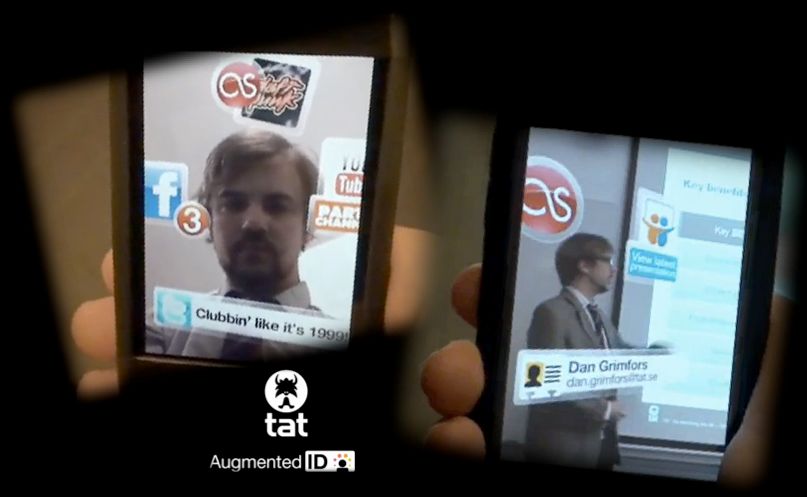Why augmented reality will blow your mind
Reality 2.0 is amazing - and it scares us silly

My brain crashed yesterday. I was sitting in the BBC, waiting to blab about gadgets, and I was next to a distinguished-looking chap who looked incredibly familiar.
"I know him," I thought. "I know that face." But my brain wasn't playing, and it was only when I asked somebody later on that I discovered I'd been sitting next to one of the greatest novelists in the entire universe.
Wouldn't it have been great if I'd been able to surreptitiously point my mobile at him to discover who he was, Google what I should and shouldn't say to him, and then post geotagged ransom notes to his publisher as I kidnapped him and bundled him into the boot of my car?
Augmented Reality promises all that and much, much more.
The idea behind Augmented Reality is simple enough: your phone's camera is the input device, and information is displayed on the screen.
Looking for the nearest Tube station? Directions are overlaid on the pavement in front of you. Hungry? Point your mobile down the street to find out what's cooking where. Completely unable to remember somebody's name and desperately need to know whether to kiss them or punch them? Point your mobile in their direction and watch their Facebook profile appear on-screen.
What's particularly amazing about Augmented Reality is that it exists, and in many cases it'll be available for your phone in the very, very near future.
Get daily insight, inspiration and deals in your inbox
Sign up for breaking news, reviews, opinion, top tech deals, and more.
IBM built an AR app that overlaid key data as people moved their mobiles around at Wimbledon, an idea that would be perfect for any kind of sporting event, museum or tourist attraction. There's a Twitter app that shows Tweets around you, with messages popping up as your phone scans the horizon.
The "find my nearest Tube application" is real, and it works:
Where things will get really interesting is when people start to mash up disparate sources of information and deliver them to AR applications. Knowing where to find restaurants is amazing enough, but what if your phone also showed your friends' photos and comments about each place, or the environmental reports that discovered the kitchen is populated by enormous rats?
Facebook profiles and recent tweets when you point your phone at someone? Neighbours' outstanding planning applications and ASBOs when you're viewing a house you're thinking of buying?
How about an app that tells you whether that cute girl or boy at the bar is a bunny boiler, wanted in seventeen countries or seven million pounds in debt - or one that turns a wet high street into a football game?
How about all of the information on the entire internet, filtered and displayed on whatever you happen to be looking at?
Naturally some of the data will be wrong, with hilarious, horrifying or possibly even catastrophic consequences.
Of course, the privacy implications make Google's current data hoard look like a Post-It note. Yes, The Man will no doubt use the technology to oppress us. And sure, it has the potential to make us so reliant on machines that our brains will turn to jelly and when the aliens finally invade, we'll be too stupid to notice. But who cares about that? It's cool!
Writer, broadcaster, musician and kitchen gadget obsessive Carrie Marshall has been writing about tech since 1998, contributing sage advice and odd opinions to all kinds of magazines and websites as well as writing more than a dozen books. Her memoir, Carrie Kills A Man, is on sale now and her next book, about pop music, is out in 2025. She is the singer in Glaswegian rock band Unquiet Mind.
